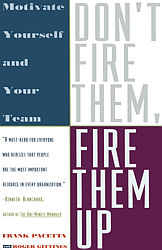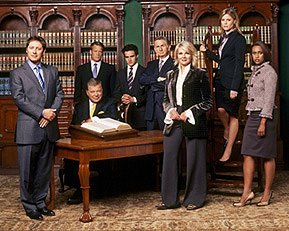The Art of Listening
 Whether you are a business person attempting to communicate with a potential client, or a parent interacting with a child, or someone in a relationship, one of the biggest investment of your time, energy and focus is to listen intently to the other party. I learned this simple lesson just the other night, when I attempted to interrupt a heated interchange between two of my teenaged children. I had the script of what I was going to say planned. Before I ventured into their domain--the space where emotions were skyrocketing--I had taken many deep breaths and had decided how I would manage the situation. Did I? Hardly. Instead, I failed abysmally. Rather than calmly settling the fight between my teens, I found myself raising my voice and pointing my fingers. Soon, instead of correcting the one offending teen, the teen I was convinced started it all, I had both teens turned against me! They accused me of heavy handed dealing. "You always do this, Dad! You don't even know what is going on and you stick your head in and start accusing someone! You never listen!"Ouch.I had to eat humble pie. I had to retreat, apologize, and try again. On a different day when tempers subsided. The lesson was so simple. Listening. You have only to listen, and you have only listened if the party you are trying to communicate with perceived that you have done so! Listening begins with an attitude. It translates into an active intent of caring for the other person. Listening empatically also means you need to drop your scripts. You need to stop rehearsing what you're gonna say next. You gotta involve yourself with the other party's world. How do they feel? What matters to them? Why do they think the way they do? What's their situation? Sometimes listening means never having to say whatever you had planned to say. Listening also means you are prepared to have your mind changed. I learned that profound concept reading Stephen Covey's 7 Habits of Highly Effective People.  When I first encountered it, I had to reread it a couple of times and reflect on it before the principle sank in. Since then, I have realized how powerful it is in communication. Genuine, two-way, empathic communication really begins to flow when I allow myself that humble attitude of listening empathically and being prepared to have my mind changed as a result interacting with my dialogue partner. Rather than go in with the intent to change the other party's mind, our relationship takes on a new, profound level: that of a partnership. As partners, we begin to figure out new solutions together in a spirit of mutual cooperation and care for one another's best interests. We become community.
---------------oOo---------------
Don't Fire Them! Fire Them Up!
 I read this book several years ago, and it fired me up!It is a story about the author, Frank Pacetta, who was assigned to one of the worst performing sales territory of his multi-national firm as sales manager. He took the time to look at the territory and the team, and then set about with a plan and strategy that transformed the team from the bottom of the heap to the top within a couple of years!I don't remember much of the details of the story now (I oughta read the book again!) but I do remember that it contained a lot of annecdotes and ideas of the different programs he used, and most of all, reading it will renew your faith in the human spirit.It will also reinforce within you that if you believe in someone and you show it consistently and enthusiastically, and you make sure that every fiber of your being translate into a cheerleader for that person, that belief will work miracles of transformation.It doesn't matter whether that person (or team) is a professional sales team, or a group of disgruntled workers on the factory floor, or your children. Even rebellious ones. Or, perhaps, it is you yourself who needs you to be your own best cheerleader!What folks need desperately are people who believe in them, and are committed to their success, and people who will do everything possible to empower them to fulfill and live their dreams.Who are you cheering on? I read this book several years ago, and it fired me up!It is a story about the author, Frank Pacetta, who was assigned to one of the worst performing sales territory of his multi-national firm as sales manager. He took the time to look at the territory and the team, and then set about with a plan and strategy that transformed the team from the bottom of the heap to the top within a couple of years!I don't remember much of the details of the story now (I oughta read the book again!) but I do remember that it contained a lot of annecdotes and ideas of the different programs he used, and most of all, reading it will renew your faith in the human spirit.It will also reinforce within you that if you believe in someone and you show it consistently and enthusiastically, and you make sure that every fiber of your being translate into a cheerleader for that person, that belief will work miracles of transformation.It doesn't matter whether that person (or team) is a professional sales team, or a group of disgruntled workers on the factory floor, or your children. Even rebellious ones. Or, perhaps, it is you yourself who needs you to be your own best cheerleader!What folks need desperately are people who believe in them, and are committed to their success, and people who will do everything possible to empower them to fulfill and live their dreams.Who are you cheering on?
---------------oOo---------------
A Story of Awesome Customer Service
Keith Ferrazzi of Never Eat Alone Blog has a great story about awesome customer service over at his blog:...I was in the Orlando airport with Peter Winick,
who leads FG Professional Development, waiting for our flight to Columbus on our way to Real Living – after a fun evening with the sales
force down at Fidelity corporate. We were in Outback Steakhouse, and I had been
dying for soup. So I ask the waitress if she has soup and she says No.
“But I thought I saw some people with soup,”
I said.
“Oh, we don’t have soup here. Their soup is from
the restaurant across the way. But if you give me the money, I’ll walk over and
get it for you myself.” What an amazing young woman. Melanie went to retrieve my
soup, from another restaurant, and it made my day.
Simple stuff, but it really makes a difference.
And not just in business-to-customer service, but also in personal
relationships.
Wow! This is so simple, yet so effective, and so human! I think every senior executive of every company ought to have this story told to them. They then need to embrace it, figure out a way to adopt it as company policy. They should model it and have that kind of culture infused through their organziations.
---------------oOo---------------
Customer Loyalty Lessons
Many astute marketers have carefully planned campaigns to promote customer loyalty and create systems to track and measure customers who keep returning to buy more products or services. In this way, companies are able to distinguish those customers who are leaving and those customers who continue to do business with the company. There is the old adage that the longer a customer stays with a business, the more valuable that customer is to the business. Larger enterprises have been leveraging technology and their marketing campaigns in order to capitalize on this human behavior. Many of these customer loyalty campaigns are increasing companies bottomline for it is much more inexpensive (some say up to five or six times so) to sell to an existing customer than it is to acquire a new one.
But as Jill Griffin shows in this interesting article with the intriguing title, "What Your Worst Customers Teach You About Loyalty", this may not always be the case. Sometimes our drive to acquire new customers may actually hinder our customer retention programs, and those customers who seem to be staying with us may actually be hurting us. However, are the examples that Griffin cites relevant also to smaller businesses. For instance, are small and medium businesses able to capitalize on technology, or specifically, database marketing technologies, for instance to increase customer retention and value? Do smaller businesses have unclear customer acquisition campaigns that conflict with customer retention? What about you? Do you have systems in place to measure your customer loyalty factor? In larger enterprises, with the benefit of technology and resources, companies can conduct tests and measure the success or failure of marketing campaigns, but when you are talking about the small and medium business, your budget may not allow you to spend massively in marketing campaign and research.Recently, for instance, our company decided to conduct some exsiting customer market research. However, we have a shoestring budget, so what we did was to analyze our financial information for the past three years and rank by customer spend our top 15-20 customers. We then organize to take each of these customers' CEO along with one or two of their senior executives out to lunch one customer at a time with our Director and the Marketing Manager. The purpose of these lunch meetings with our top customers is to allow them to talk to us in a neutral environment and provide us with valuable feedback regarding our services and products and how that aligned with their business requirements. This way, we get to reinforce our relationships with these customers, and also provide them with a forum to talk to us. Using that information, coupled by our own internal analysis and discussions with our consulting teams, we hope to cull the information to help us improve our service and also provide us with ideas with things that we may not already be doing that might improve our value to our customers.
---------------oOo---------------
Allan Shore (James Spader) Rocks
 In Boston Legal, James Spader plays attorney Allan Shore, the iconoclast devil-may-care legal eagle who doesn't give a hoot about conventions, and goes about his legal wrangling in his own unassuming, eccentric manner. (Actually every main character of the Boston Legal show is eccentric. It probably should be called, Boston Wierdos or something similar, but let's just leave it at that). In tonight's episode, one classic scene is just quintessential Shore. He was checking in on Denise Bauer, played by lovely Julie Bowen. Denise was distraught that the man she loves, millionaire Daniel Post, played by the indefatigable Michael J. Fox. Post is shutting her out because he is dying of cancer. Shore only had to say one thing to get Denise off her demoralized inactivity.  Shore told her: "What you are doing now is just waiting. You are not the kind of person who waits." See that? It's called instigation. But it's not just instigation. It's instigating to positive action. What you might call "empowerment". No wonder I like watching this guy so much. Because that's what he does in his outlandish, yet passionate manner. The world needs more Allan Shores around. Perhaps we get inspired, instigated by the show to be, if not one, but almost like an Allan Shore. Another reason why I like this Shore character is that underneath the uncaring, smug, pugnacious veneer, one can detect also a compassionate heart of pure, glistening, 24K GOLD!
---------------oOo---------------
Know Thyself!
Sun Zi (or Sun Tzu) says:
Know your enemy and know yourself; in a hundred battles, you will never be defeated. When you are ignorant of the enemy but know yourself, your chances of winning or losing are equal. If ignorant both of your enemy and of yourself, you are sure to be defeated in every battle.
Although I do not usually like to characterize business as warfare, the ideas that can be gleaned from Sun Zi's ancient military handbook have very good applications to today's business world.
In the above classic passage, the application is quite obvious. In business, it is imperative that one is aware of not just the environment in which business is conducted, but who exactly the players are, their strengths and weaknesses, and most importantly of all, one's own strengths and weaknesses.
Towards that end, periodic SWOT analyses are useful. Within a team, personality profiles and team profiles are also useful. Recently, I found this tool on the web and would like to commend it to you. It is called Kingdomality, and is based on a book that describes personality profiles and uses the imagery of a medieval kingdom to describes how different personality types behave and act within the context of a group. I haven't read the book yet, but I have completed an assessment for myself, and it rates me as a Prime Minister. It doesn't really mean that I am supposed to be CEO or the Top Honcho, but just that my personality style is one that uses the style and strategies of a Medieval Prime Minister. I can see that coming across in the way I go about my work. (In previous attempts, I have come out as a Discoverer and Black Knight as well. That is probably because I have styles and preferences that fall into those categories too).
The downfall of such exercises is that one then lets the profiles dictate how one acts, behaves or feels, but the upshot of having completed profiles like these is that one gets to be more aware of one's inner strengths and cultivate them or seek to accentuate them in work and relationships. A little like finding the right shape to fit oneself into.
What is your profile?
I can imagine an entire team within an organization completing this profile and then coming together and discussing their own strengths, weaknesses and uniqueness. Knowing each other in a deeper way can often help with teamwork, cooperation, leverage and collaboration.
What's your team profile? Who do you have on your team? How are you leveraging each other in order to meet your team's goals and objectives?
---------------oOo---------------
Business Plans
Ricardo Semler (of Maverick fame) once said, "Business Plans are extrapolations of wishful thinking." So, what do business plans mean to you and your organizations? Do you have a business plan? If you do, how much do you let your plan guide your activities?
---------------oOo---------------
Illusions. What're yours?
At a meeting today, someone quoted from a book that he is currently reading: "In order to be disillusioned, one must first have an illusion."If you find yourself disillusioned about an organization, a person, a campaign or an event, you need to stop yourself and ask: what was my illusion about that which I am now disillusioned about?We all look at life through a pair of glasses. Whatever the tint of your glass, that would be the hue through which you view the world. Your "reality" is then only your perspective seen through what philosophers call "paradigms."What is your paradigm?
How is it affecting your view of yourself, your family, your work, your relationships, your world?What are your illusions?
---------------oOo---------------
|

 When I first encountered it, I had to reread it a couple of times and reflect on it before the principle sank in. Since then, I have realized how powerful it is in communication. Genuine, two-way, empathic communication really begins to flow when I allow myself that humble attitude of listening empathically and being prepared to have my mind changed as a result interacting with my dialogue partner.
When I first encountered it, I had to reread it a couple of times and reflect on it before the principle sank in. Since then, I have realized how powerful it is in communication. Genuine, two-way, empathic communication really begins to flow when I allow myself that humble attitude of listening empathically and being prepared to have my mind changed as a result interacting with my dialogue partner. 




